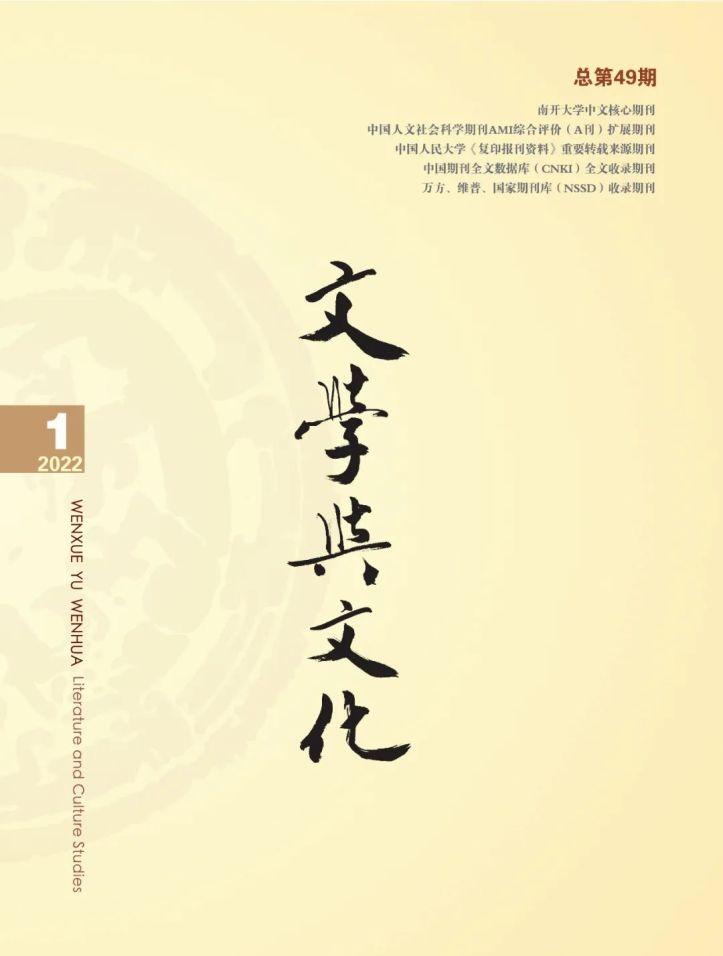
Literature and Culture, No. 1, 2022
[Literary Thought and Culture] Moderator: Cha Hongde
In 2004, the large-scale collection of Yuanwen "Quanyuanwen" was all published, including more than 3,200 authors, more than 35,000 articles, and compiled into 60 volumes and 1880 volumes, totaling about 28 million words, which attracted widespread attention from the academic community. People believe that the publication of quanyuanwen will definitely lead to the study of yuan dynasty articles.
Nearly twenty years have passed, and yuanwen research has not emerged as expected. The snub of Yuanwen research is in great contrast with the research and development trend of Yuan poetry and Yuan Dynasty poetics. Yuan Dynasty articles have their own unique characteristics and values, Yuanwen research needs to be promoted, and its cold and silent status quo should be changed.
Based on this understanding, this column publishes three meta-text research papers.
"The Academic Origins of Yuan Jue" aims to study the history of Yuan Dynasty articles, because Yuan Jue is a key figure in breaking through the estrangement between the north and the south of the Yuan Dynasty literary circle and promoting the integration of the north and the south, and the reason why he can play this unique role is related to his academic background.
"Taking Temperament as the Purpose: The Poetic Spirit Embodied in the Order of the Yaji in the Yuan Dynasty" explores the theory of poetic temperament of the Yuan Dynasty from the specific style and unique perspective of the Yaji sequence, and has new gains. The flourishing of the creation of the preface is a major feature of the history of articles in the Yuan Dynasty.
"On the Shangyou Wind of the Yuan Dynasty and the Generation of the Gift Order" explores the reasons for the prosperity of this genre and reveals the driving force of the new changes in the Gift Order in the Yuan Dynasty.
Yuan Jue's academic origins cha hongde
Taking Temperament as the Purpose: The Poetic Spirit Embodied in the Order of the Yuan Dynasty Ya Collection Ma Yingjie
On the Generation of shangyou wind and gift order in the Yuan Dynasty Song Wanming
[Poetics and Lexicology] Moderator: Wu Sijing
The "Centennial New Poetics Case" is a "Major Project of the Key Research Base of Humanities and Social Sciences of the Ministry of Education" presided over by Professor Wu Sijing and approved by the Ministry of Education. The title of "Study Case" draws on ancient intellectual history works such as "Song and Yuan Studies Case" and "Ming Confucianism Case", and gives it new connotations according to the development and research status of new poems in the past century.
This issue of the "Centennial New Poetics Case" column promotes two articles:
One is Qin Yameng's "Cao Baohua and the Theory of Modern Poetry", which points out that the Western modern poetry theory translated by Cao Baohua has influenced and united the Peking poetry fans centered on the Qinghua poetry crowd, promoted the "modern" process of new poetry, and had an important impact on the development of new poetry.
The second is Jiang Hongwei's "The Beginning and End of Xu Jingya's Writing of the Rising Poetry Group", which provides the background and process of Xu Jingya's writing of this paper, so that readers can have a more comprehensive understanding of the controversy and criticism caused by the "Rising Poetry Group".
Cao Baohua and "Modern Poetry" Qin Yameng
Xu Jingya's "Rising Poetry Group" was written and published by Jiang Hongwei
[Cultural Research, Spatial Pathology] Moderator: Zhou Zhiqiang
Dr. Gao Yu creatively proposed the proposition of "spatial pathology research" on cities. He links the growth of the city with the spiritual symptoms of modern society, and re-understands the crazy rational and dialectical imagery that exists in urban culture from a psychoanalytic perspective. In fact, whether it is the "enormity" of the city, "spatial cleanliness", or the "heterotopian fantasy" of the park, or the "false memory" of the museum, it can be included in the scope of this "spatial pathology". Gao Yu's research has just begun, but it has hidden innovative points in urban critical theory.
In this issue, the same issue publishes the landscape topic of Tianjin's Fifth Avenue discussed by Wang From the perspective of "sanitary modernity". Foucault's "dirty" and "neat" embody the sense of self-identification in modern society: clean is to expel the temporal thing of "tradition" in a spatial way. "Hygiene" becomes the physical experience that "justifies" the life of modern people.
Zhou Yanwei's thesis addresses design ethics issues, especially the relationship between urban renewal and effective forgetting. I think that the new critical study of the city based on the "spatial pathology" should be very promising.
Create entirely new spaces for capital accumulation
The phenomenon of "gentrification" and its mechanism are explored by Gao Yu
Revisiting the streetscape of the Fifth Avenue from the "Hygiene Modernity" period of the British Concession
Nostalgia as a strategy to shape the future
——Research on heritage remodeling and landscape production mechanism under the background of urban renewal Zhou Yanwei
[Literature and Intercultural Communication]
"Everything the Body Remembers": The Power Discourse Behind the Death of Women Wang Chunjing
Writing the history of Indian English literature and the construction of the national community
——Take Ai Yangar's "Indian English Creation" as an example of Zhang Wenyu
[Cultural Perspective]
Zhao Yuanfang's unrepentant collection of books was included in the National Library of Tibet for examination
——Centered on the donation of the Yongle Canon, Bai Yunjiao
The manifestation and rewriting of traditional elements
——A brief analysis of the contemporary online fandom of an ancient novel by Hu Qing
Nezha Image Reconstruction and Contemporary Cultural Symptoms Han Xudong
Literature and Culture, 2021, Issues 1, 2, 2, 3 and 4